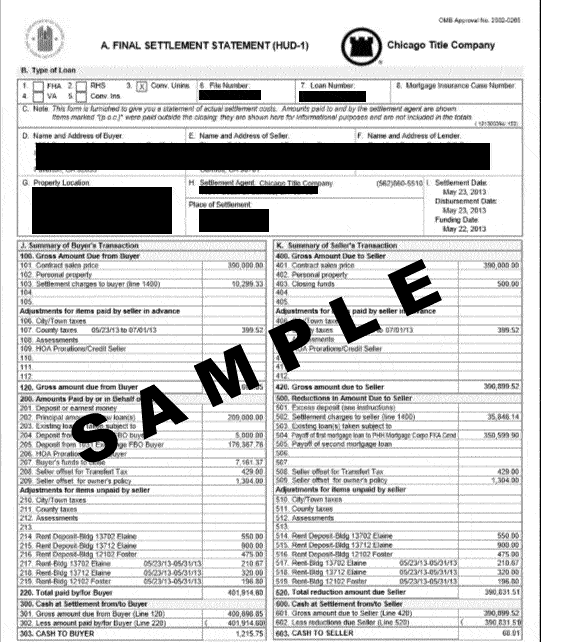The purchase of your home was exciting, stressful, and now a thing of the past. You moved in, started painting, unpacking, and getting back to daily life. Now it’s tax time and you are going from a short form to a full blown tax return with schedules and strategies.
You are probably wondering if all the tax savings projections were true.
Time to go see the tax preparer, hopefully a CPA, who can analyze your numbers and strategize with you on how best to leverage your home purchase.
Here’s what they’ll need:
1. The closing statement or HUD1 from when you bought your home. It probably came in the mail from your Realtor or a few days after the “close of escrow.” Below is a sample of the form.
On that form, your CPA will pick up what points you paid for the loan, the prorated interest, the prorated taxes, and other fees that may be deductible.
2. A 1098 and possibly a 1099 from your lender/servicer; and if your loan was sold then there will be more than one.
The 1098 gives your CPA the interest and probable taxes paid to the lender that you get to deduct. You’ll need the 1099 if you have an impound (or escrow) account because you earned interest on that money, and now it’s part of your taxable income.
If you don’t have these forms available you can find them online. If I helped you with your loan, then I can provide them for you.
3. If you paid your tax bill yourself, then you will need to bring it to the tax appointment.
4. Lastly, if you bought units, you will also need to bring receipts for the repairs or upgrades you did and the rental income you collected. This is why I LOVE having a property manager because it saves me all the bookkeeping and record keeping for tax time.
Cheers and happy savings!!
Athena Paquette



